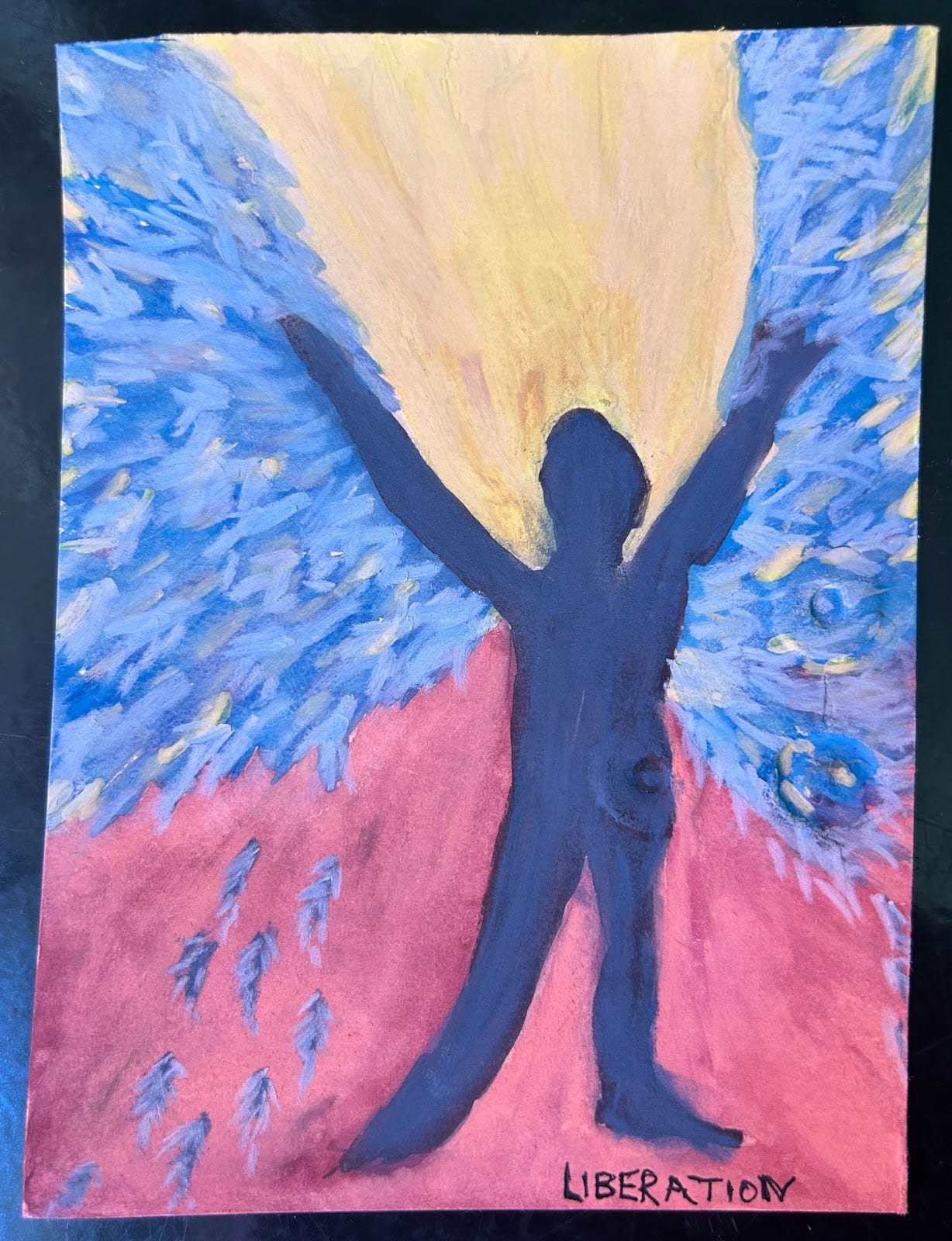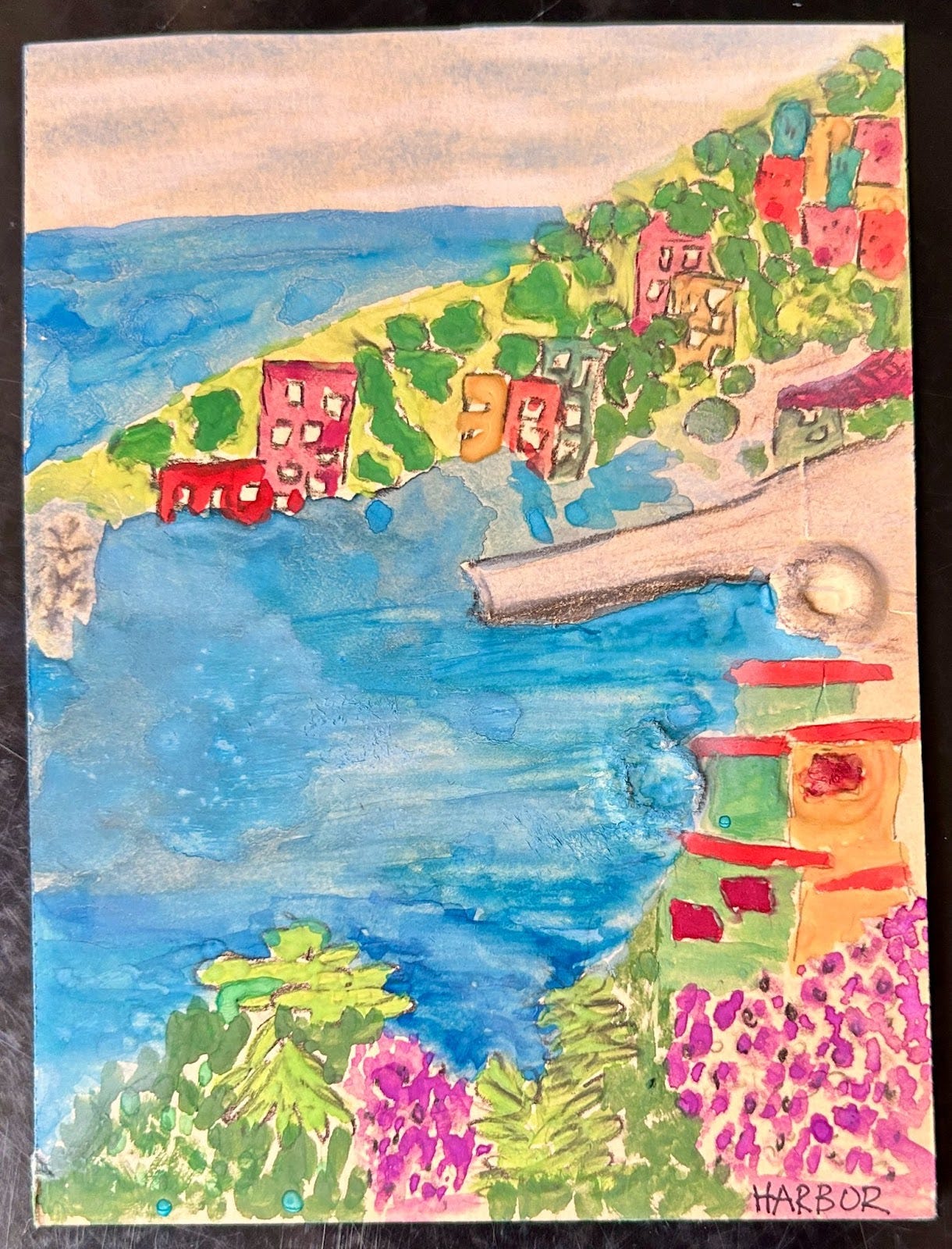I spent most of my teen years unmoored. My parents divorced when I was thirteen, and within a year or so, my mother started seeing my stepfather. I sensed this new situation was emotionally unsafe, but I didn’t have any intimate experiences with alcoholism that could explain why I was wary of this new person in our lives. I didn’t understand the quicksand that had replaced the foundation of my mother’s home. So I fled. First to the stability and safety of my father’s house two blocks away, and then further to Austin, where I could stretch the threads that tied me to my family.
My early twenties were spent navigating bureaucratic systems–public assistance, financial aid, child support–and cultural attitudes that equated young single mothers with loose morality and a talent for scamming the government. I created stability for my daughter and myself through the community I built, but we were all so young. Everyone in flux. People graduated, found new jobs, left Austin. Our connections frayed.
It's been twenty-eight years since I, too, left Austin, and although I did a pretty good job of building a stable foundation for my children in Olympia–we found the people who are our people–it's only been a few years since I’ve felt the emotional safety I lost all those years ago when my mother married my stepfather.
Writing that last sentence, I questioned the truth of it. What might be more accurate is to say that I’ve finally felt stable within myself. Much of my adult life, I’ve been a tightly furled bud waiting for the right conditions to sigh deeply and let my petals unfold. What I mean is that as I’m learning to trust myself (to listen to my body), I’m expanding my understanding of what it means to be emotionally safe. I can articulate, finally, what it feels like when I’m not emotionally safe and what it is I need in order to feel like that tight bud that is my scared psyche can continue unfurling.

Most of my life I’ve had no choice but to be resilient as hell. I remember when I was a young mama, I was often told you’re so strong. At first I wore that strength like an honor, like evidence that being young and broke and stressed and parenting alone was my choice and, hey, look how easy it is getting up at 3am to do homework, then getting myself and a tiny one ready for the hour long bus ride to the childcare center, and chasing toddlers all day while running off to classes during the cracks between everything else that needs doing.
Eventually, though, I got tired of being strong, of holding everything together for everyone. It took a long-ass time, like twenty years, for me to understand the damage being strong did to the tight-bud of my psyche. It took another ten years to understand the damage it did to my body. A Crohn’s diagnosis forced me to face the reality that stubborn independence is not the same thing as resiliency.
There is a time for resilience, and there is a time for unfurling. I’m fifty-one and just beginning to understand that resiliency can mean asking for help, accepting support. It turns out unfurling feels a lot like being held.

Yme and I talk about harbors and wings. He is my harbor, and I am his. The work of our partnership is to offer shelter, and at the same time, allow space for each of us to spread our wings and follow the traces of our own growth. The work of our partnership is trusting one another to return to the harbor we’ve created together and share what we discovered on our journeys.
This concept of harbors and wings is present in all intimate relationships, and its the crux of parenting. It's probably the hardest part of building adult relationships with my children. It's their time to create new harbors and discover their own flightpaths. And like me, my children have to grapple with the legacy of divorce. What does a harbor look like when your parents dismantled the one you relied on as a child? How do you fit into the harbors your parents are building with new partners? Another foundation must be made, one that is built on mutuality, and that takes time. As with Yme, I’m learning to trust that my children and I are building something new, and the things they discover on their own journeys will enrich our relationships.
This spring, I planted sunflower seeds in the backyard knowing they would likely get eaten by birds. It was an act of non-attachment – there were gaps between the yarrow that seemed like they wanted sunflowers, so on a whim, I planted last year’s leftover seeds. Maybe this year the birds would let them grow.
What I didn’t expect was the anger I felt towards the squirrels who one by one, pulled up all but two of the sunflowers. One morning, I caught a squirrel ripping off low hanging leaves and chewing on the stalk of the smaller of the two remaining sunflowers. I ran outside yelling and threatening, and it scurried away, but the damage was done. A few days later, Yme and I discovered the sunflower broken and laying across the rosemary. We also found more leaves, from the fatter, stronger sunflower, laying in the dirt. It was a windy day, and rain was coming, so we decided to tie the sunflower to a wooden stake. Supported sunflower.
Here is what the sunflower is telling me today: everything I’ve absorbed about being independent and strong is wrong. In order to unfurl, I need support, stakes tied gently to a stalk with soft tee-shirt scraps. True independence is a product of interdependence. Harbors are waiting to hold me, so that when I’m ready, I can fly.
Olympia-area folks! Save the date!
Summer Break: a reading for nurturing creativity and connection
Saturday Aug 16th, 2025. 4:00 PM-5:00 PM. Upstairs at Browsers Bookshop in downtown Olympia.
Please join us upstairs at Browsers on Saturday, August 16 at 4:00 PM for a reading of recent work from the Joyful Practice for Dark Times workshop community.
Joyful Practice is an approach to writing and art-making grounded in collaboration, cross-pollination, and play. The readings at this event will reflect the Joyful Practice process; expect moments of surprise and delight; expect genre-bending; expect unintended but meaningful patterns and connections. Expect to be sent off with your own playful prompts to try at home.
We hope to see you at the reading!






This is hitting me as so powerful today, Sarah. It's ironic, but I got another substacker that I follow sending me a gorgeous tribute to a friend of his who died recently, but who painted ocean and boat scenes (they were gorgeous; the writer included some shots of these). But he talked a lot about harbors. And then I read this passage:
"Harbor. Harbors are the places that hold you. They also revel in your wings. Sometimes you return to the harbors that held you. Sometimes you leave them for good. A strong harbor is a place of safety, where you can rest and begin to heal what is wounded. A strong harbor is a place that doesn’t want to preserve you in amber. It understands that your growth is connected to its own growth."
The friend who died left a text underneath one of his last paintings that read:
"...if we all don't make it into port none of us will. We must learn to get along as this sloop is doing heading for safety in hard times. I hope the sloop makes it as I hope we all will."
So now today I've woken up, took a long walk at 6:30 am, cleaned my house with one good arm, still recovering from surgery, and reading about harbors, ports, and the metaphor of support, of your journey through the wilds of resilience and beyond, and how we need to keep finding that safe harbor, especially in the treacherous waters we are now finding ourselves in. Thank you for this today. xo
Oh, Sarah, I so appreciate your piece today on harbors and wings and love that you and Yme found safe harbors in each other.
Mark and I are almost 55 years into our relationship, well, 57 years if we count its entirety, and have navigated the many periods of being each other’s safe harbor while one of us stretched our wings. It sounds so stable in retrospect but didn’t always feel that way at the time. Still, it’s balanced out well so far.